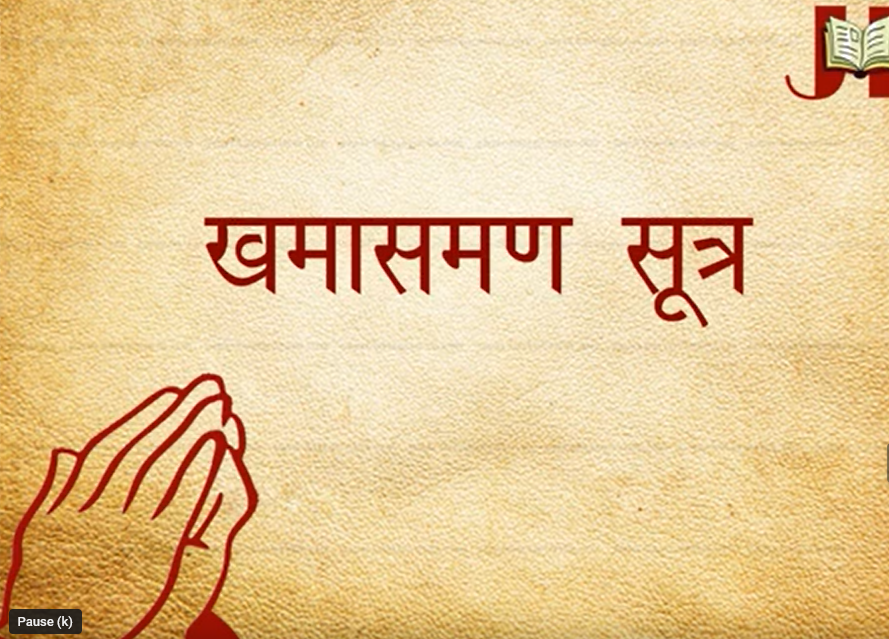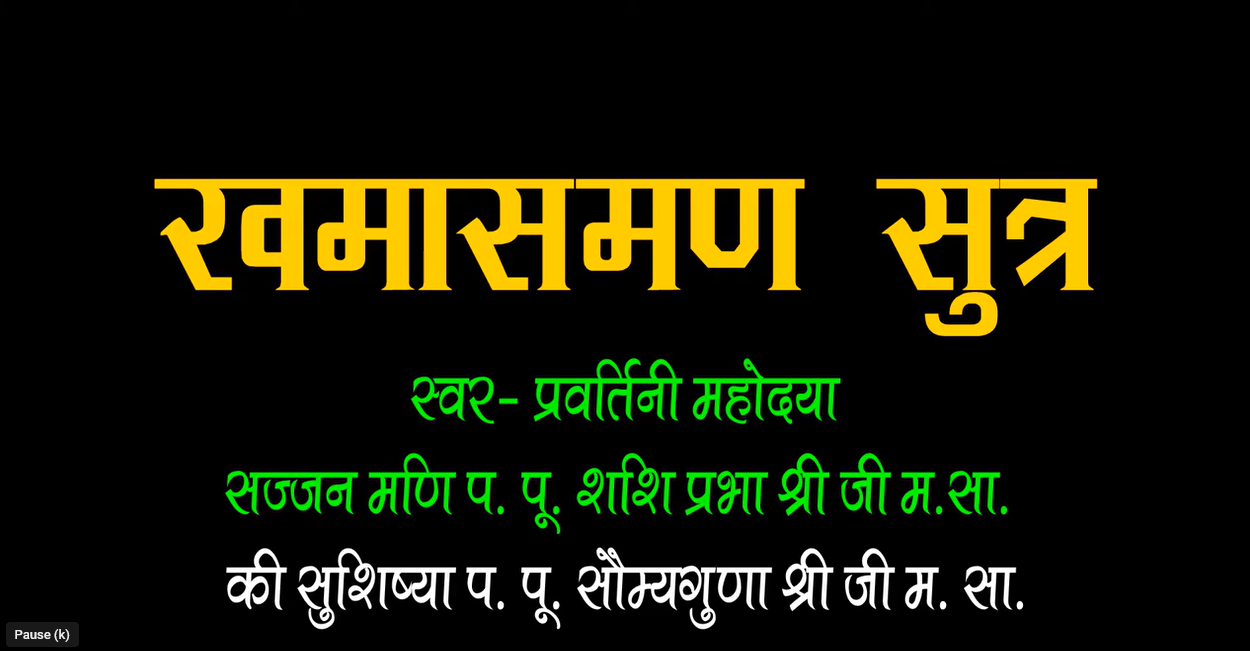Contact Whatspp
+91 96366 96366
+91 96366 96366
|| संसार दावानल स्तुति || | अर्थ |
|
|| SANSAR DAVANALA STUTI|| | Meaning |
sansara-dava-nala-daha-niram, | I bow to you, revered Lord Mahävira you are like water to put out the wildfire of mundane existence, like a gale of wind to blow away the dust of infatuation, like a plough to till away the ground of deceit and steadfast like Mount Meru, 1 |
|| સંસાર દાવાનલ સ્તુતિ || | ગથાર્થ |
સંસાર-દાવા-નલ-દાહ-નીરં, |
मति ज्ञान:- समकित श्रध्धावंतने उपन्यो ज्ञान प्रकाश प्रणमुं पदकज तेहना भाव धरी उल्लास
“ॐ ह्रीं श्री मतिज्ञानाय नमो नमः”
ईच्छामि खमासमणो, वंदिउं जावणीज्जाए निसिहिआए मत्थएण वंदामि |
श्रुत ज्ञान :- पवयण श्रुत सिद्धांत ते आगम समय वखाण पूजो बहुविध रागथी, चरण कमल चित आण
“ૐ ૐ श्री श्रुतनयनाय नमो नम:”
ईच्छामि खमासमणो, वंदिउं जावणीज्जाए निसिहिआए मत्थएण वंदामि |
अवधि ज्ञान :- उपन्यो अवधिज्ञान नो, गुण जेहने अविकार वंदना तेहने मारी, श्वासे मांहे सो वार।
“ॐ ह्रीं श्री अवधिज्ञानाय नमो नमः”
ईच्छामि खमासमणो, वंदिउं जावणीज्जाए निसिहिआए मत्थएण वंदामि।
Utility :- By this sootra salutation are made to the Deva and Guru. Deva means Jineshwara Bhagwana and Guru means Jaina monks who never keep any money any woman with them . Three Khamasamanas are offered to the Deva and two Khamasamanas are offered to the Guru Maharaja. Obeisance is done by bowing the five limbs viz. two hands, two feet and the head.

